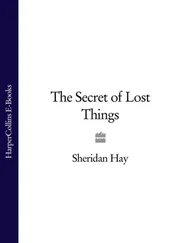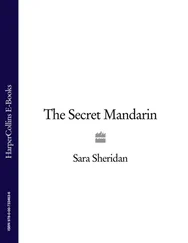‘Captured by an emir’s caravan and held there? Now that’s not good. I will make enquiries,’ he says. ‘Leave it with me, Lieutenant Wellsted, and I will see what I can find out.’
‘It is a matter of some urgency, sir.’
Ibn Mudar bows. ‘Of course. Immediately.’
With the efficiency of a man who is used to getting a great deal done, Ibn Mudar calls his slave boy.
‘Bring me Rashid,’ he snaps. The yellow-robed child immediately disappears to find the chief clerk, who is stationed at Mickey’s warehouse, a few streets away.
Wellsted’s cup is refilled and the agent asks polite questions.
‘And your work? How goes the survey?’
‘Slow but sure,’ Wellsted grins. ‘The reefs are all but impossible but the charts are coming along.’
‘Any French vessels?’
This is of interest to any trader with ships on the nearby seas.
‘Only very close to the Egyptian coastline. Where you would expect, really.’
‘It will be good to have maps,’ Mickey points out and Wellsted says nothing in reply, only downs the rest of his coffee.
‘Do you think they might still be alive?’ he asks.
The agent’s face does not alter its expression one iota. ‘My brothers would say it is in Allah’s hands,’ he says. ‘Let me see if I can find out what Allah has in mind. I will send Rashid the moment he comes. He is the man for this job. Leave it to me.’
The men shake hands and Mickey sees the lieutenant to the door of his office.
While he waits, Mickey strokes his thick, salt-and-pepper beard and retreats back onto the comfortable cushions in the corner of the room to consider matters. The British survey interests him tremendously, for if it is successful there will be a far greater volume of English ships in the Red Sea and he will be contracted to see to their needs. He is determined to do his job well for the English. Mickey is inclined to do everything well – he is careful and fastidious in all his dealings. He will apply this to the search for Jessop and Jones – which potentially, he realises, is one of the most dangerous situations with which he has been asked to help. Men die all the time, but kidnap is a different matter.
Watch out, he says to himself. God knows what they are up to, the tricky bastards. And now there are two of them missing .
When Mickey thinks of the English, the voice in his head is always that of his Irish wife, Farida, who maintains that without question the English are untrustworthy. Her tribe, it seems, are perpetually at war with the lily-skinned sailors, though they share the same tongue. Mickey trusts Farida’s judgement. He was young when he bought her at auction after she had been captured on a shipwreck. He was a brash, young buck of a merchant of twenty who had made his fortune quickly. He wanted to show the world that he was cosmopolitan and he knew an exotic, white-skinned beauty in his harim would make his name as much as any bale of fine silk ever had. There was no question of love. When he met her, however, he realised just how much he had focussed all his attention on his business and how little he knew of the world beyond it. At first he expected she resented being captured and sold, but she told him frankly after only a fortnight, that his house was a hundred times the size of the cottage in Rowgaranne, County Cork, where she was brought up, that she had spent much of her young life there hungry, cold and in want and that she would gladly stay in his beautiful harim , especially as his wife.
The land of white men still seems to Mickey like a fairy-tale kingdom. The landscape Farida describes is undoubtedly accurate and yet it is so outlandish. She swears on her life that Cork is so rainy that much of the land is bog, and so cold that sometimes when it rains the drops freeze solid. He finds this particularly difficult to imagine – Mickey, for all that he is a trader, has never left the south of the Arabian Peninsula and the thought of freezing, squelching mud flats is almost incomprehensible to him. That the people who live in such a place should subsist on potatoes and that spice is almost unheard of is bizarre. In fact, he finds the lack of camels and gazelles in the stories his wife tells of her homeland profoundly eerie. And the infidels have such strange names – Macgregor, McLean and O’Donnell.
‘Why, you are silly,’ Farida laughs, dismissing him with a wave of her elegant, snow-white hand. ‘That’s only your Ibn . Macgregor is the son of Gregor (that is the name of the man who taught me to read – our priest at home) and O’Donnell (which is my name, you know) is Son of Donnell. It’s exactly the same as yours – Ibn Mudar – the son of Mudar. Or Ibn Rashid is the son of Rashid. The word Ibn is only O or Mac in English, or rather in the Gaelic. We shan’t go into the Fitzes now, my dear. But it’s only a way of identifying your family – like all names. Don’t you see?’
At first Mickey can’t get used to it – European languages simply have too many consonants. He is certain that he’ll never become fully accustomed to the sound.
‘You Arabian lads,’ Farida continues, ‘have great swagger and no mistake. We only call our chief soldiers, our boxers and wrestlers The Knife or The Hurricane. Whereas you fellas have legions of names like that – serious fellas can be Al this or Al that. The Dog, The Thief, The Lion. Well, fair play to you, I say. You’re warriors one and all. You can be my Ali Ibn Mudar, Ali Al Malik – Ali the King. I am your possession now, after all, and you my master, like royalty.’
Mickey kisses his wife hotly on the lips. She is a wonderful woman. She has taken to his household far more easily than could have ever been hoped and, better still, she is a boon in business. Farida has no qualms about Arabian manners or customs and her open-mindedness rubs off on her husband, who finds himself more and more intrigued by her tales. His world is opening up.
The strangest thing of all though is that in Farida’s country, it seems, men only take one wife. Or, as she says with a characteristic giggle, ‘One wife at a time’. This shocks Mickey to the core – it seems such a barbaric practice.
‘But what happens to the other women the man desires?’ he says.
‘Exactly, my boy,’ Farida grins. ‘Now in these parts here you have what I would term a practicable system. I can see this working out very nicely indeed.’
Over the years she has remained indescribably foreign for all her aptitudes and the whole-hearted fashion in which she has adopted her new, Arabian life. While his other brown-eyed beauties scent themselves interminably with exotic oils, coil their hair into glossy ringlets and dote on the nursery of children that they have produced, Farida or Fanny as she originally wished to be called, on her very first day demanded pen and ink to draw pictures of the plants in Mickey’s courtyard garden and write reams of descriptive prose and poetry. Within six months of her arrival, the Pearl, as he has come to call her, is speaking Arabic like a master at the university. She reads and memorises long portions of the Quran and fashions herself a set of silk garments from the harim’s stock of materials that prove to be deeply enticing to Mickey O’Mudar.
‘Never been without a bodice. Not going to feckin’ start now,’ she says.
Mickey never can tell what she is going to do next, what she might read or what strange ideas she will voice. The thing he likes about her most, though, is the fact that she is clearly interested in pleasing herself as much as she pleases him – both in bed and out of it. This is an irresistible challenge after years of women bred to compliance. Farida is a matchless pearl indeed and, illuminated by the spark of independence that is so natural to her alongside her fierce intelligence, she stimulates him body and mind. It does not matter to him one jot that in all the years she has not borne him a child. In fact, it adds to her allure, her difference from his other wives. It is also probably the only reason why the other women in the harim accept the strange, pale-skinned foreigner. She is not – as far as they are concerned – competition, for she has no son to compete with their own. She is, they think, a mere dalliance to keep Mickey amused.
Читать дальше












